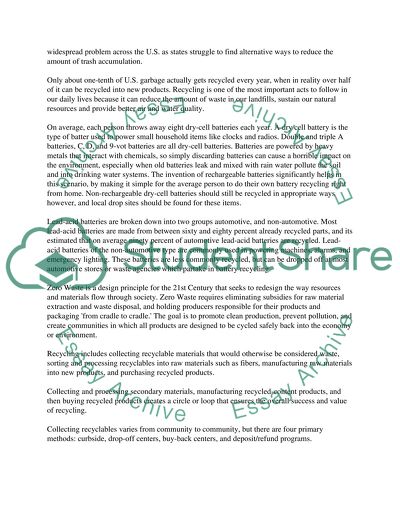Cite this document
(“Recycling Research Paper Example | Topics and Well Written Essays - 1250 words”, n.d.)
Retrieved from https://studentshare.org/miscellaneous/1520447-recycling
Retrieved from https://studentshare.org/miscellaneous/1520447-recycling
(Recycling Research Paper Example | Topics and Well Written Essays - 1250 Words)
https://studentshare.org/miscellaneous/1520447-recycling.
https://studentshare.org/miscellaneous/1520447-recycling.
“Recycling Research Paper Example | Topics and Well Written Essays - 1250 Words”, n.d. https://studentshare.org/miscellaneous/1520447-recycling.


